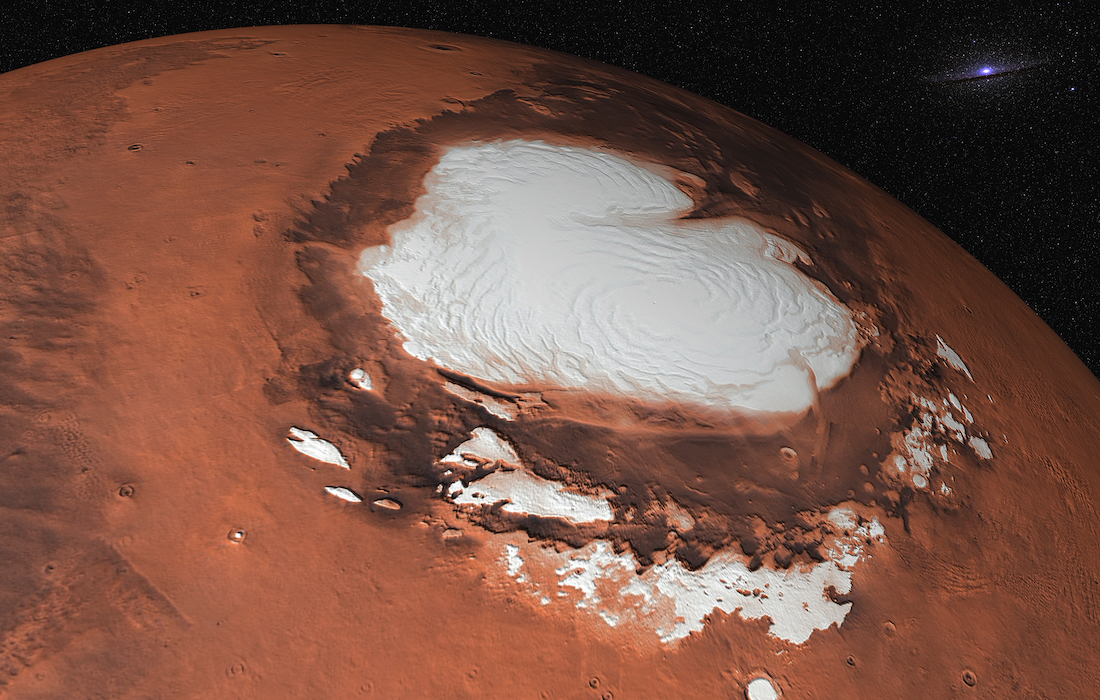Ever since we started investigating Mars with spacecraft back in the early 1960s, investigators have been on the lookout for proof of water on the Red Planet. Every mission gathers more evidence for the presence of water in the past and present, and specialists share that knowledge with the public.
On Earth, conclusive proof of water is easy to obtain from rainfalls, snowfalls, lakes, ponds, rivers, and the oceans. Considering we haven’t toured Mars in person, scientists work with evidence collected by spacecraft and lander rovers on the surface. Future astronauts may be able to find water, investigate it, and even use it. It’s necessary to know how much water exists on the Red Planet.
Streaks on Mars
Over the few years, specialists have noticed unique dark streaks that resemble the surface on precipitous slopes. They appear to come and go with the transition of seasons, as temperatures changes. They darken and seem to flow down through periods when the temperatures are more heated, and then disappear as things calm down. These streaks develop in several locations on Mars and have been called recurring slope lines or “RSLs”. Scientists strongly doubt they’re relevant to splashing water that accumulates hydrated salts that have been in contact with water on those slopes.
Salts point the way
NASA’s Mars Reconnaissance Orbiter declared the Compact Reconnaissance Imaging Spectrometer for Mars. It looked at sunlight after it had been mirrored from the surface, and investigated it to understand what chemical components and minerals were there. The investigations showed the chemical signature of hydrated salts in various locations, but only when the dark features were more extensive than usual. A second look at the same places when the swaths were not very wide didn’t turn up any hydrated salt. What this signifies is that if there’s water there, it’s sprinkling the salt and making it show up in the observations.
What are these salts? Observers concluded that they are hydrated minerals called perchlorates which are known to exist on Mars. Both the Mars Phoenix Lander and the Wonder rover have discovered them in the soil specimens they’ve studied.

Why worry about water on Mars?
The discovery of water on Mars is the outcome of many investigations over the last 50 years, each one leaving proof of the existence of water. More information will help scientists understand how much water the Red Planet holds and its origins underground.
Eventually, people will visit Mars, perhaps anytime in the next 20 years, hopefully. When they do, those first Mars astronauts will need all the information they can gather about restrictions on the Red Planet. It’s essential to life.
Even if we never manage to send people to the Red Planet, knowing its history and compositions will help us solve many mysteries. In particular, knowing if there is, or ever was water on Mars will help us fill many gaps.







